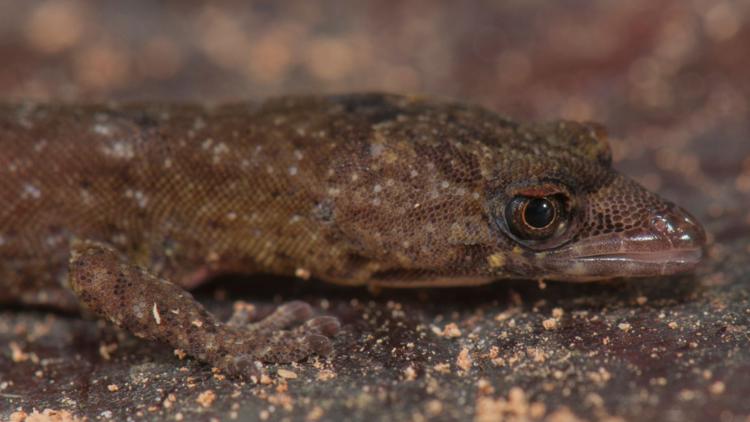ARLINGTON, Texas — A team of researchers led by the University of Texas at Arlington has discovered a new species of gecko.
The new species was found in the Paria Peninsula of northeastern Venezuela and unique characteristics of the species include its small size (about 2.5 inches long), brown color, cone-shaped head, long snout and particular skull anatomy. The discovery was published in the Zoological Journal of the Linnean Society.
Named Pseudogonatodes fuscofortunatus, the lizard species was discovered during fieldwork in the forests and mountains in the Paria Peninsula and identified via a combination of visual examination, molecular genetics and high-resolution X-ray computed tomography (CT) scans.
The researchers collected specimens in 2002 and again in 2014, noting the gecko’s unique skull structure, which led to further investigation.
“The Paria Peninsula, part of the Coastal Mountain Range of Venezuela, has been a hotspot for reptile and amphibian discoveries in recent decades,” said the study’s lead author Walter E. Schargel, a professor of instruction in biology and earth and environmental sciences at UT Arlington. “The region’s complex geography and climate create diverse habitats that can support a wide range of species. The new gecko species adds to the growing list of reptiles that live only in this area, emphasizing the need for continued exploration and conservation efforts in the region.”
The research team included experts from various institutions in the U.S., Portugal, Spain, Brazil, Colombia and Venezuela.
“This discovery not only enriches our understanding of the biodiversity in this part of Venezuela, but it underscores the significance of preserving these unique ecosystems,” said Dr. Schargel. “I hope this discovery fuels increased conservation measures to protect the habitats of this rare species and other native species in the region.”
Experts say they hope the study highlights the potential for further discoveries in the Paria Peninsula and similar areas, where many animal species remain undocumented.



